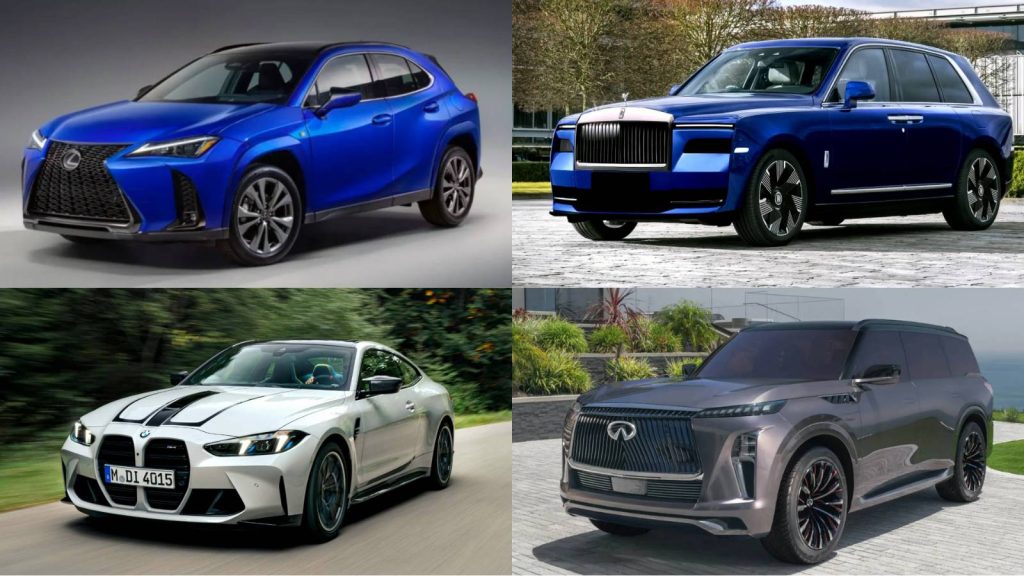Purchasing a luxury car is not just about transportation—it’s an investment in comfort, performance, and prestige. Whether you’re drawn to the sleek design of a Mercedes-Benz, the advanced technology of a Tesla, or the timeless class of a Rolls-Royce, buying a luxury car requires careful planning and research. From evaluating your budget to understanding long-term ownership costs, this luxury car buying guide will walk you through every step to ensure you make an informed and confident decision.

Why Buy a Luxury Car?
Luxury vehicles go beyond basic functionality. They provide:
- Superior Performance: Powerful engines and advanced driving dynamics.
- Advanced Safety Features: Cutting-edge driver-assist systems and crash prevention technologies.
- Prestige & Comfort: Premium interiors, high-end materials, and status appeal.
- Innovative Technology: Infotainment systems, autonomous features, and eco-friendly options like hybrid or electric powertrains.
Buying a luxury car isn’t only about prestige; it’s about enjoying a premium lifestyle experience.
Step 1: Define Your Needs and Budget
Before stepping into a dealership, clarify what you want in your vehicle.
Questions to Ask Yourself:
- Do I want a sedan, SUV, or sports car?
- Is fuel efficiency important, or do I prioritize performance?
- What is my maximum budget, including insurance and maintenance?
💡 Pro Tip: Factor in long-term costs like maintenance, repairs, and fuel. Luxury cars may require premium parts and services, which are pricier than standard vehicles.
Step 2: Research the Best Luxury Car Brands
Different brands cater to different lifestyles.
Popular Luxury Brands:
- Mercedes-Benz: Elegant design with advanced technology.
- BMW: Sporty handling and performance-driven models.
- Audi: Stylish interiors and reliable all-wheel drive.
- Tesla: Electric luxury with autonomous features.
- Lexus: Reputation for reliability and comfort.
- Rolls-Royce & Bentley: Ultra-luxury with handcrafted excellence.
👉 Check out our detailed comparison of best car safety features 2025 and top car accessories for luxury cars to enhance your buying decision.

Step 3: Consider New vs. Pre-Owned Luxury Cars
Both options have advantages.
Buying New:
- Latest technology & safety features.
- Full manufacturer warranty.
- Higher price and depreciation rate.
Buying Certified Pre-Owned (CPO):
- Lower cost with luxury benefits.
- Warranty options available.
- May have higher mileage or wear.
💡 According to Edmunds, new luxury cars can depreciate up to 50% within the first five years. A certified pre-owned model may give you more value for money.
Step 4: Explore Financing and Leasing Options
Financing:
- You own the vehicle.
- Higher monthly payments but long-term ownership.
Leasing:
- Lower monthly payments.
- Option to upgrade every few years.
- Mileage restrictions and return conditions apply.
🔗 For more details, check out our guide on how to sell a luxury car fast if you plan to trade or resell later.
Step 5: Inspect and Test Drive
A luxury car may look perfect online, but nothing replaces a physical inspection.
During the Test Drive:
- Check engine response and handling.
- Test infotainment and comfort features.
- Evaluate visibility and driving position.
- Listen for unusual noises.
Bring a trusted mechanic if buying pre-owned.
Step 6: Evaluate Ownership Costs
Luxury cars come with premium ownership expenses.
- Insurance: Higher premiums due to vehicle value.
- Maintenance: Specialized servicing and premium parts.
- Fuel: High-performance engines may require premium fuel.
- Depreciation: Consider resale value before purchase.
📊 According to Kelley Blue Book, luxury vehicles often have 30% higher ownership costs compared to non-luxury models.
Step 7: Check Warranty and After-Sales Service
Always review what the warranty covers:
- Powertrain protection.
- Roadside assistance.
- Scheduled maintenance.
Brands like Lexus and Audi offer extensive service packages, making ownership hassle-free.

Step 8: Make the Final Decision
After thorough research, financing approval, and test driving, you’re ready to finalize your purchase. Take your time—this is a long-term investment.
Conclusion
Buying a luxury car is an exciting yet significant financial decision. From defining your needs and researching brands to test driving and considering ownership costs, each step ensures you make the right choice. Remember, luxury cars offer more than prestige—they deliver performance, safety, and innovation.